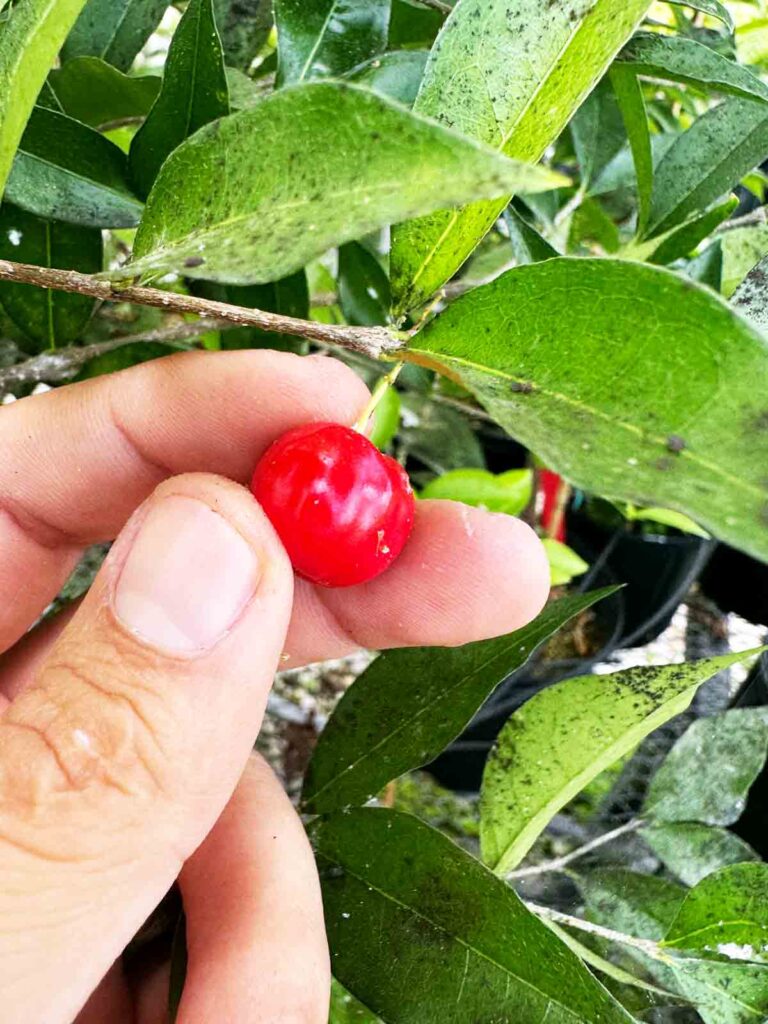GAINESVILLE, Fla. — University of Florida researchers are studying whether acerola cherry, also called Barbados cherry, could become a new nutritious crop for Florida.
The fruit, which thrives in the Caribbean, Mexico, Brazil and other parts of Central and South America, is rich in vitamin C, carotenoids, anthocyanins and phenolic compounds with antioxidant and anti-inflammatory properties. According to researchers, just one cup of acerola can provide more than 1,800 percent of the daily recommended intake of vitamin C.
Scientists with the UF Institute of Food and Agricultural Sciences (UF/IFAS) are working with a Brazilian colleague to study the fruit’s genetics and test how it adapts to Florida growing conditions. Field trials are underway at the UF/IFAS Plant Science Research and Education Center in Citra, a farm in Pierson, and the UF/IFAS Tropical Research and Education Center in Homestead.
“These nutritional benefits have elevated acerola to superfood status, making it marketable for fresh consumption, desserts, supplements or juice,” said Felipe Ferrao, who is leading the project for UF/IFAS.
“They can contain up to 100 times more vitamin C than oranges, making them a powerful candidate for enhancing and supplementing our diet.”
The research seeks to determine which varieties perform best in different climates, soils and management systems, while also examining how conditions affect fruit quality and nutrition.
“Our central goal is to determine the best regions and practices for growing acerola, while understanding how climate conditions influence fruit quality and nutritional value,” Mr Ferrao said.
The UF team said acerola could also provide a new option for citrus and avocado growers struggling with crop diseases. With most of Florida’s oranges used for juice production, researchers believe acerola could be processed using the same infrastructure.
“As citrus and avocado growers struggle, it’s critical that UF/IFAS help farmers grow more emerging crops,” Mr Ferrao said.
“With approximately 90% of oranges grown in Florida used for making orange juice, growers could take advantage of the existing citrus juice infrastructure, make acerola juice that is delicious, refreshing and nutritious.”
Among those working with Ferrao are Patricio Muñoz and Ali Sarkhosh, associate professors of horticultural sciences at UF in Gainesville, and Jonathan Crane, professor and tropical fruit Extension specialist, along with Jugpreet Singh, assistant professor of tropical fruit breeding and genetics at TREC.
The project also includes collaboration with Flavio França, a researcher and acerola specialist at Embrapa Semiarido in Brazil.
“While Brazil is the top producer of acerola, the University of Florida has an important role,” Mr França said, noting that the ‘Florida Sweet’ acerola was grown at TREC in the 1950s.
The researchers said that by combining genomic tools, breeding techniques and better management practices, they aim to identify acerola plants that produce higher yields, unique flavors and strong nutritional value.
“We envision acerola could as a viable crop for agricultural future, contributing to economic growth and food security,” Mr Ferrao said.








